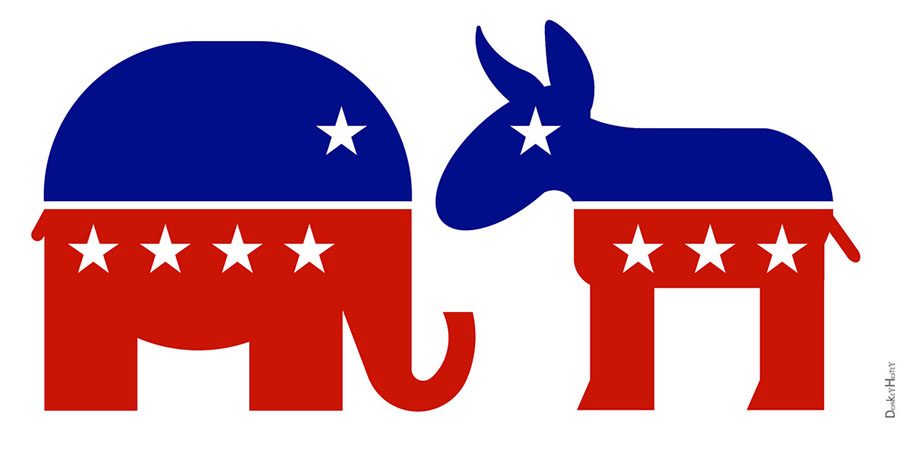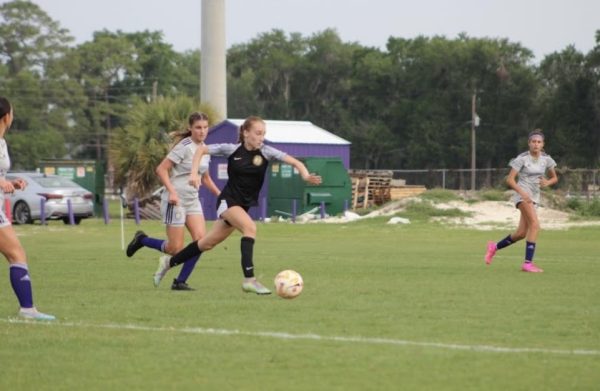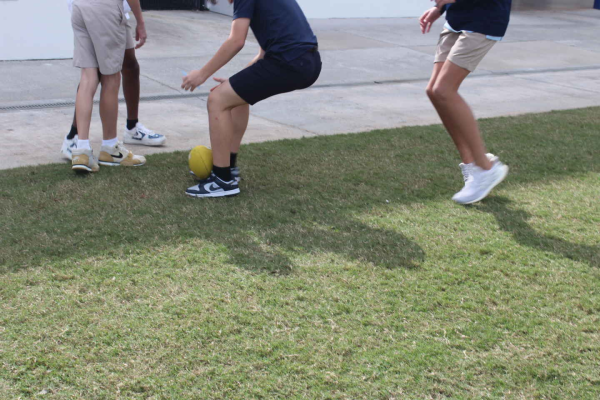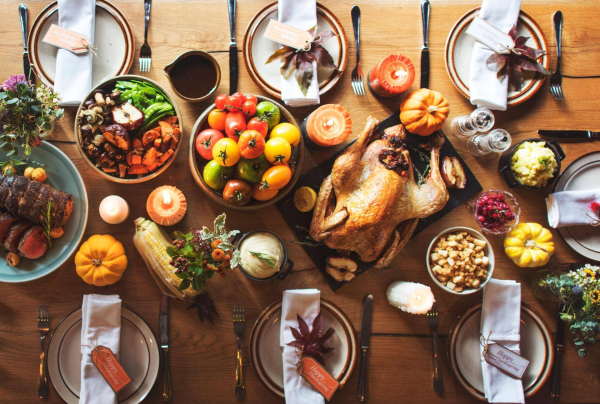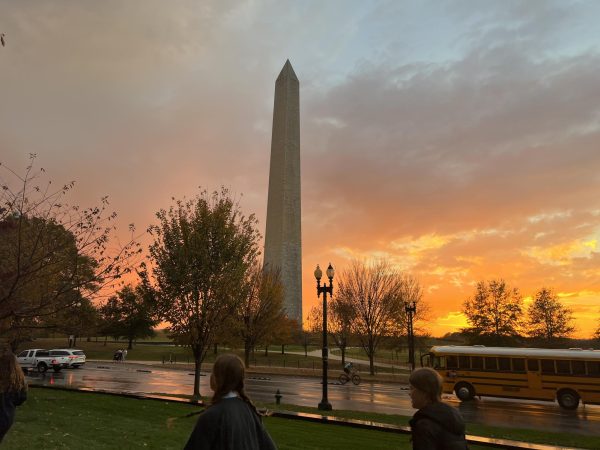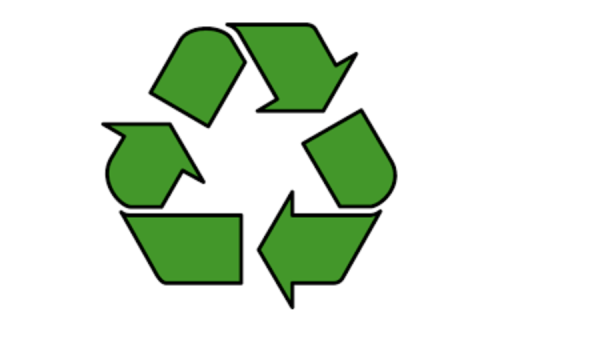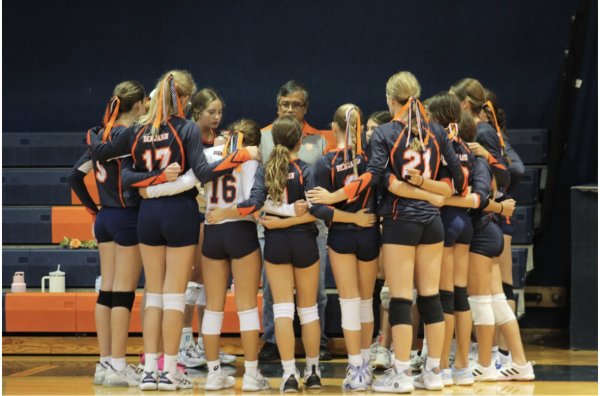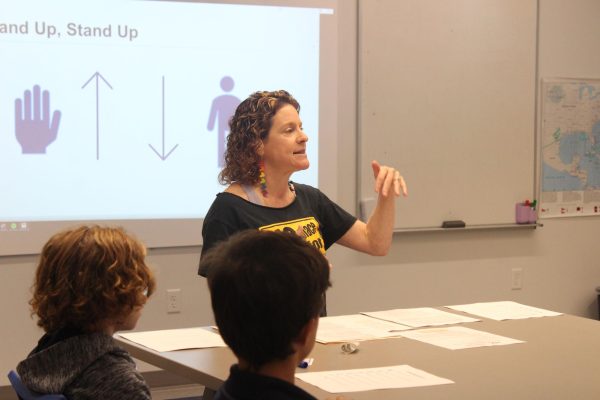Upcoming Debates Give Students Taste of Political Process
Middle School students will have an opportunity to present the platforms of each party during their debates.
The presidential election season is in full swing, and the Benjamin Middle School is following suit with their own student-led mock presidential debate which will be held on October 17. The debate will focus on both domestic and foreign policy. This is not the first time Benjamin has held mock presidential debates. “We did this in 2012, and it was a very useful experience for students,” said Dean of Academics Dr. Cristina James. “We want students to understand by the time they’re 18 what a privilege and responsibility it is to vote their consciences and to really become informed, which is part of casting a responsible vote.’’ James is assisting Head of Middle School Mr. Charles Hagy and History Department Chair Marshall Mullinix in coordinating the debates.
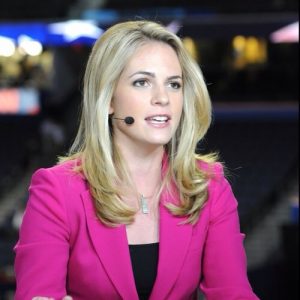
WPTV News CHannel 5 reporter Tory Dunnan will be the moderator for the student debates.
The Benjamin Middle School mock debates will be moderated by Tory Dunnan, a local WPTV News Channel 5 reporter. In the past, she was a national correspondent for CNN where she covered a story on former Beatles drummer Ringo Starr. She was also on the ground reporting on the Boston Marathon terrorist attack, the tragedy at Sandy Hook, and the U.S. Supreme Court Affordable Care Act. Benjamin was fortunate enough to secure Dunnan to moderate the debate by sending a note to the local NBC News affiliate, WPTV, and she responded happily that she would help. Dunnan will challenge students with questions regarding how much they actually know about foreign and domestic policies. Dunnan could even bring a camera person to cover the event, which would be a boon for Benjamin. She also might talk to the students about her experiences that she has had while covering stories.
After the controversial and fiery first national debate between Republican presidential nominee Donald Trump and Democratic nominee Hillary Clinton on Monday, September 26, the subsequent vice presidential debate, and the second presidential debate held on Sunday, October 9, students and teachers alike are hoping that the middle school debates will engender much discussion and educate students about the differing views of both the Democratic and Republican parties. However, Hagy wants to make it clear that the student debates will be different from the national debates in that it is not going to center around the personal differences between the candidates, but the differences in the parties’ political platforms.
In fact, Hagy is so committed to the idea that students learn about the platforms of both parties as opposed to expressing their own political views that he had students who wished to participate draw from a hat as to which side they would represent: Republican or Democrat. Several students found themselves on the opposing side of what they believe, which, as Hagy feels, is one of the most important parts of the debate. One seventh grader who supports the Republican party and wished to remain anonymous, applied to be in the debates but did not get the party he hoped for. He was assigned to be a Democrat and he was not thrilled by it: “I don’t like Democrats at all,” he said. “I love Republicans. [I dislike Democrats] because they always [create] more taxes. They destroy the economy. Republicans help the economy but never win [the election].” The student was annoyed that he has to support a party that he “doesn’t like at all.” He is now not enjoying the debates as much as he would, since he will be debating against that in which he believes.
Other students like Shang Wang, a seventh grader who just moved from China before this school year, have never debated before.“It’s my first time to debate and I’m interested in [the process of] casting a responsible vote,” said Wang.
Debaters were chosen by a group of teachers who read essays of student applicants on the topic of why it is important to cast a responsible vote. There was an anonymous vote for the top papers, and those people were randomly assigned a party. The students are preparing by learning about their assigned topic within the realms of domestic or foreign policy for mainly their assigned party, but also for the opposing party. Debaters received a packet on political platforms that contains all the information they need to know for the debate. This makes the job easier for the debaters, since they have the debate on top of all their other homework. History Department Chair Marshall Mullnix also spent his lunch periods leading up to the debates preparing the student speakers and organizing the finer points of the debate.
In addition to this preparation, some debaters are going the extra mile like Emeline Smith, a seventh grader who is trying to learn all she can. “I’m researching everything I can about the democratic side online,” said. Smith.
The winner of the debate will be decided by a select group of teachers who will vote on who debated the policies best, not by the policies themselves. They will consider who knew their side best, and who had the most convincing arguments for their party. The students in the audience will be given a comprehensive worksheet to fill out about the debates and will be assigned a brief writing prompt to express who they believe won. Not only will this exercise ensure the students in the audience are paying attention, but it will also help them learn more about politics.
Benjamin is even holding a mock presidential election later in October. This will be great preparation for real-life voting. It is the hope of Hagy that this endeavor will help students understand both the importance of voting and becoming informed about the candidates and their platforms. He wants students to not only understand the debate process, but actively participate in the election process.
According to justfactsdaily.com, a website dedicated to researching and publishing verifiable facts about public policy, a startling number of voters are uneducated about many topics that are part of political platforms. The most common topics that voters are uneducated about are tax burdens, child hunger, landfills, educational spending, Social Security finances, and health insurance copayments. In these areas, 25% of voters, when interviewed about what these issues were, answered incorrectly, and in one instance only 9% had the correct answer. This just shows that Hagy’s reason for conducting the debates is a real concern. Having students reflect on how to cast a responsible vote will make them citizens who can make a difference as they grow to adulthood in the 21st century.
